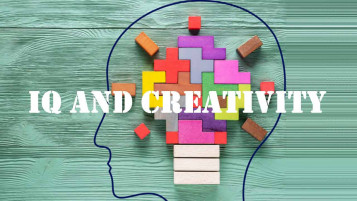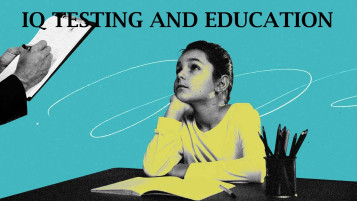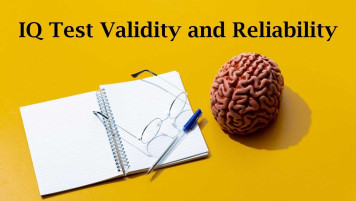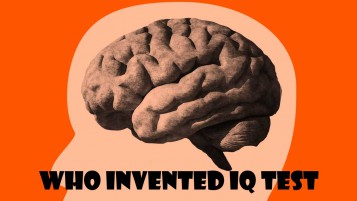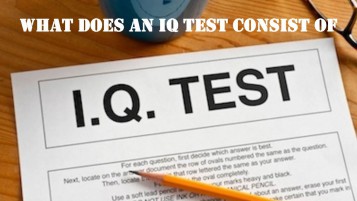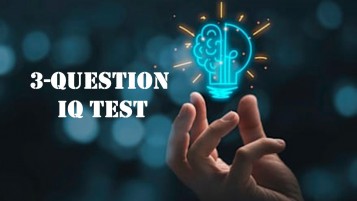Can a high IQ make you more creative or does creativity live on a different track? For decades, psychologists, educators, and artists have debated the link. Pop culture often treats “genius” as a single trait, but research paints a more nuanced picture: intelligence and creativity are related, yet distinct. In fact, how they relate changes across the ability range and depends on what kind of creativity you measure.
IQ is a standardized score derived from tests of reasoning, processing speed, working memory, and knowledge. It’s optimized to measure general cognitive ability, how efficiently you learn patterns, solve novel problems, and apply knowledge.
Creativity is the capacity to produce ideas or products that are both novel and useful. Researchers typically distinguish between:
These aren’t the same. A person can ace divergent-thinking tests yet never ship a creative project or vice versa. (Hennessey & Amabile, 2010).
A classic claim in the literature is the threshold hypothesis: to do high-level creative work, you need at least above-average intelligence, but beyond that threshold, more IQ doesn’t always buy you more creativity.
Older studies often placed the “line” at an IQ of ~120, but they used arbitrary splits (e.g., above vs. below 120) rather than detecting a break in the data. A modern re-analysis using segmented regression (i.e., letting the data locate the “kink”) brought clarity:
For creative potential, the “breakpoint” depends on what you mean by “creative”:
When originality is judged leniently (just two original ideas), the threshold appeared near IQ 100.
When you require many original ideas, the threshold rises to about IQ 120.
For idea fluency (number of ideas, regardless of quality), the threshold was lower around IQ 85.
For creative achievement, no threshold was detected; higher intelligence continued to predict more real-life creative accomplishments even at relatively high levels of ability (Jauk, Benedek, Dunst, & Neubauer, 2013).
What this means: IQ is a necessary but not sufficient ingredient for impressive creative potential and the bar is higher when you demand sustained originality. But when it comes to shipping creative work in the world (achievement), more intelligence still helps.
A famous school study by Getzels & Jackson (1962) found many students were either high in IQ or high in creativity tests but not both. That observation has been widely quoted to suggest “you’re one or the other.”
Two important clarifications:
First, the pattern varies depending on who is studied and how creativity is measured. The Getzels & Jackson findings came from schoolchildren taking paper-and-pencil divergent thinking tests, which capture only one slice of creativity.
Second, later research, including a meta-analysis by Kim (2005), found a small-to-moderate positive correlation between intelligence and creativity overall. The exact strength of the link shifts depending on the type of creativity test and the scoring method used.
In short, a high IQ and creativity are not opposites but they also don’t always go hand in hand.
The late psychologist Donald MacKinnon studied highly creative professionals (scientists, engineers, authors) and concluded that, beyond a basic cognitive floor, creativity reflects habits of mind, playfulness, tolerance for ambiguity, idea generation strategies that can be learned and strengthened (MacKinnon, 1962/1995).
Recent work supports this “trainable skills” view. For example, openness to experience curiosity about ideas, aesthetics, and variety reliably predicts creative potential and achievement. Notably, once the IQ threshold is met, openness becomes a stronger predictor than additional IQ points (Jauk et al., 2013; Feist, 2010).
Bottom line: IQ sets the floor; mindset, knowledge, and practice build the house.
So why does IQ indicate a level of potential and a linear relationship between achievement?
The tasks of divergent thinking (potential) rely on working memory and executive control to inhibit the blatant responses and search semantic net. Personality and knowledge carry more weight once you have hit a specific capacity threshold (Benedek, Franz, Heene, & Neubauer, 2012).
The success is a compounding factor: talent, opportunity, persistence, practice in the domain, networks are most of the ingredients, along with intelligence, which comes to aid the learning curve, problem solving, and complexity in the midst of gifted cohorts (Wai, Lubinski, and Benbow, 2005; Park, Lubinski, and Benbow, 2007, 2008).
Think of IQ as horsepower. It assists and that is particularly when the road is steep. However, creative mileage is also hard to achieve without fuel (curiosity), maintenance (habits), and the route you take (domain expertise and goals).
Is IQ “enough” for creativity?
No. Evidence suggests a threshold for creative potential, after which personality (notably openness) and domain knowledge explain more variance. For achievement, higher IQ still predicts more output even within gifted samples but it is one factor among many (Jauk et al., 2013; Park et al., 2007; Wai et al., 2005).
Does a very high IQ hurt creativity?
There’s no solid evidence that it harms creativity. What some studies show is a weaker correlation between IQ and creativity above the threshold—which is different from a negative relationship (Kim, 2005; Jauk et al., 2013).
Can creativity be learned?
Yes. Training in divergent thinking, exposure to diverse knowledge, iterative practice, and cultivating openness increase creative output, especially once cognitive basics are in place (MacKinnon, 1962/1995; Feist, 2010; Runco, 2010).
IQ and creativity are teammates, not twins. Intelligence lays groundwork especially for handling complexity and learning quickly. But the spark, direction, and staying power of creative work draw heavily on openness, knowledge, and disciplined play. If you want more creativity in your life, you don’t need a different brain. You need better inputs, strategies, and habits and a willingness to make, share, and iterate.
References:
